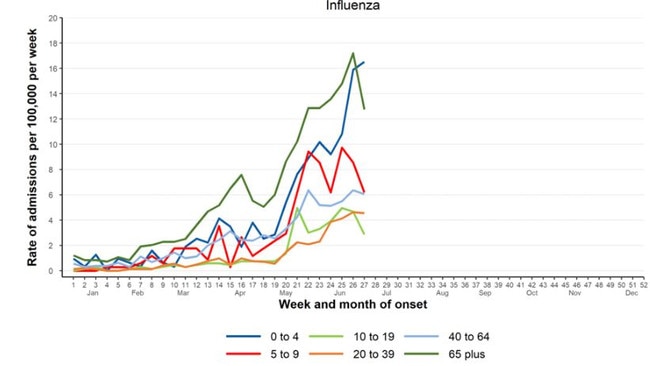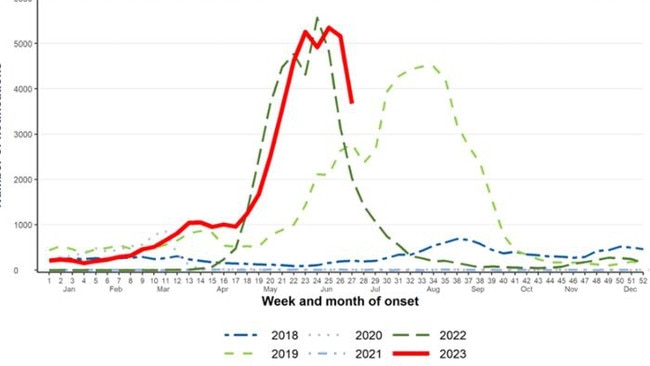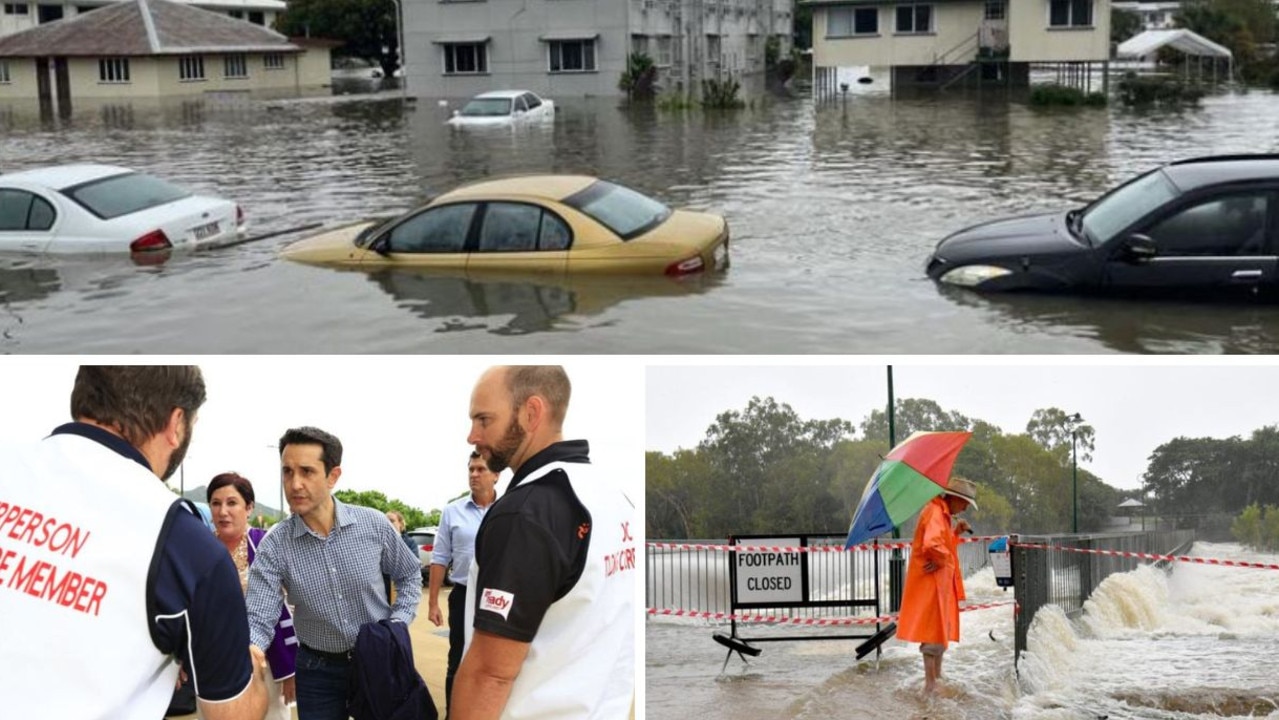Flu cases among Queensland children as hospitalisations close in on 4000
There is growing alarm as an explosive surge in potentially deadly cases has Queensland experts on high alert.

QLD News
Don't miss out on the headlines from QLD News. Followed categories will be added to My News.
Queensland is bracing itself for what experts predict will be the worst flu season in recent history and children are emerging as the most vulnerable demographic.
The situation, mirroring the grim reality of the horrific 2019 flu season, has raised alarm bells across the state. It comes amid the death of 11-year-old Sunshine Coast girl Emma Schwab.
A tally of 47,300 cases, 3,814 hospital admissions, and 31 ICU admissions have been registered in 2023 alone.
Worryingly, Queensland Health reveals that admissions for under-fours stricken by flu have soared to a shocking 16 per 100,000 in mid-July from a mere 9 per 100,000 in mid-June.

The influenza B strain, known to impact young children most severely, is gaining a firm foothold in the state, with 2,071 out of 3,672 confirmed cases from July 3 to July 9 attributable to this subtype.
The state’s chief health officer, Dr John Gerrard, called attention to the worrying trend.
“We are very concerned about the increase in influenza B cases and the high rate of unvaccinated patients, particularly with school resuming this week,” he said.
Despite a significant increase in influenza cases Queensland’s vaccination rates are hitting an lowest.
Commonwealth Department of Health and Aged Care data shows 1.61 million Queenslanders received flu vaccines so far in 2023 compared to 1.98 million for 2022, 1.65 million for 2021 and 1.766 million for 2020.
The state’s current flu vaccine uptake stands at a dismal 18.6 per cent for infants aged 6 months to 5 years, well below the national average of 23.6 per cent.
Alarmingly, the figure further plummets to just 11.1 per cent for children aged 5 to 15.
Griffith University infectious diseases and immunology expert Professor Nigel McMillan said although the way a flu season will go can be hard to predict he held serious concerns for this year.
“I think we’re on track to probably have one of our worst years for flu. We saw the vaccination rates for not only influenza, but normal childhood vaccinations drop off a bit as well,” he said.
Mater infectious diseases director Associate Professor Paul Griffin said vaccination was the key to escaping a truly horrific season.

“One big piece of misinformation people often have about the flu and flu vaccines is that if you’ve just had the flu, there’s no point in getting the vaccine. But even if they’ve had the flu, it’s not too late to get vaccinated and get some protection for the remainder of the season,” he said.
As flu numbers skyrocket, the situation appears particularly bleak in Central Queensland, with figures sitting at a shocking 5.7 times higher than the 5-year mean.
Similarly, the Wide Bay region and several hot spots around South East Queensland, including Metro South, Metro North, Gold Coast, and Sunshine Coast, are witnessing significantly higher-than-usual numbers.
South East Queensland is notably home to the region’s most concentrated flu hot spots, with the areas of Metro South, Metro North, Gold Coast, and Sunshine Coast experiencing substantial case numbers.
Metro South, holds the dubious title as Queensland’s largest flu hotspot.
With an alarming tally of 12,412 flu cases just in 2023 alone, of which 985 have emerged in the most recent week from July 3 to July 9.
Following closely behind, the Metro North region emerges as the second-largest hotspot, tallying 9,883 flu cases this year, with 704 identified within the same week of July.
The Gold Coast ranks as the third most prominent hotspot, with a total of 4,874 flu cases in 2023.

The first week of July alone contributed to 423 cases to this daunting count.
Lastly, the Sunshine Coast, as the fourth biggest hotspot, accounted for 3,186 flu cases this year, including 269 that emerged in the July 3-9 period.
The looming flu season has also cast light on the risk of co-infection, where a patient is infected by both type A and B influenza.
In the past week alone, 19 people in Queensland were co-infected.
Medical professionals urge individuals experiencing flu symptoms to immediately seek medical help and to stay home in a bid to prevent further spread.
Dr Gerrard has issued an urgent call for Queenslanders to get vaccinated to ease to spread.
“If you or your children have not been vaccinated against flu, I urge you to please book in with your GP or pharmacist to do so,” he said.
“We don’t want any more Queenslanders to suffer the anguish of being hospitalised or the grief of losing a loved one.”
He also emphasised the critical need for vaccinations, particularly among children and pregnant women.




